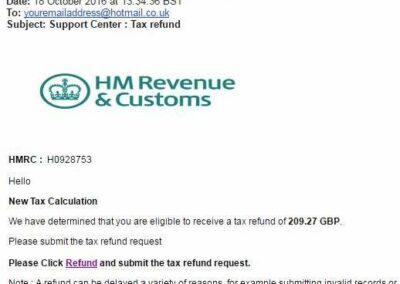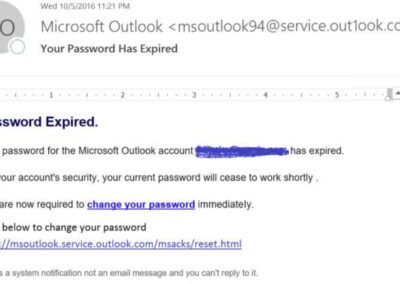Protect Yourself from the Council Tax Scam
How to Spot and Avoid Fraudulent Messages
The council tax scam is a prevalent and frustrating attack that preys on individuals’ fear and uncertainty about their tax obligations. Scammers use cleverly crafted messages to trick unsuspecting victims into divulging personal information or making payments under false pretenses. In this blog post, we’ll explore common tactics used in the council tax scam and provide actionable strategies for protecting yourself from falling victim to these deceptive schemes.
Understanding the Council Tax Scam
The council tax scam typically involves fraudulent emails or messages that impersonate government agencies, such as the local council or Valuation Office Agency (VOA). These messages may contain various deceptive claims, including:
-
False Claims of Incorrect Tax Band: Scammers insist that you’re in the wrong council tax band and are owed back payments on your council tax bill, even if your band is correct.
-
Request for Bank Details: Fraudulent messages may claim to be from the local council or VOA and ask for your bank details under the guise of providing a refund.
-
False Charges for Challenging Tax Band: Scammers may falsely claim that the VOA charges a fee to challenge your council tax band, tricking you into making unnecessary payments.
-
Misrepresentation of Legal Requirements: Fraudulent messages may falsely assert that taxpayers must, by law, be represented by an agent to challenge their tax band, leading you to believe you need to hire their services.
How to Protect Yourself from the Council Tax Scam
To safeguard against the council tax scam and protect your personal information and finances, consider the following preventive measures:
-
Verify Sender Authenticity: Before responding to any tax-related emails or messages, verify the sender’s authenticity. Check the email address for spelling errors or inconsistencies, and contact the relevant government agency directly to confirm the legitimacy of the communication.
-
Never Share Personal Information: Be cautious about sharing personal information, such as bank details or passwords, in response to unsolicited messages. Legitimate government agencies will never ask for sensitive information via email or text.
-
Be Skeptical of Unsolicited Requests: Exercise caution when receiving unsolicited requests for payments, refunds, or personal information. Question the legitimacy of the message and seek confirmation from official sources before taking any action.
-
Educate Yourself: Familiarize yourself with common tactics used in the council tax scam and stay informed about the latest scams and fraud trends. Knowledge is your best defense against fraudulent schemes.
-
Report Suspicious Activity: If you receive a suspicious tax-related email or message, report it to the relevant authorities, such as Action Fraud in the UK. By reporting scams, you can help prevent others from falling victim to similar schemes.
The council tax scam is a pervasive threat that targets individuals’ trust in government agencies and their desire to comply with tax obligations. By verifying sender authenticity, never sharing personal information, being skeptical of unsolicited requests, educating yourself about common scams, and reporting suspicious activity, you can protect yourself from falling victim to the council tax scam. Stay vigilant, stay informed, and safeguard your finances and privacy against fraudulent schemes.






